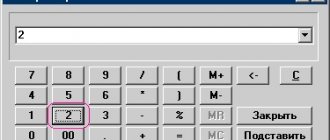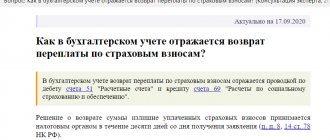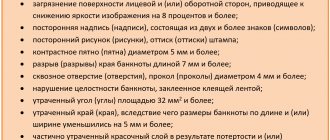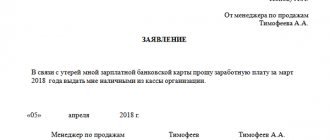11/19/2017
A. Gordon
Central Bank of the Russian Federation from January 1, 2021 established new rules of exchange control. The first and main change is that transaction passports known to participants in foreign economic transactions will no longer be used from January 1, 2018.
Passports of transactions under contracts (loan agreements), which on the date of entry into force of the new instruction of the Central Bank are not closed and are in the currency control file, are recognized as closed without the authorized bank making marks about their closure and are stored in the currency control file.
These are the requirements of the new Central Bank Instruction dated August 16, 2017. No. 181-I “On the submission by residents and non-residents of supporting documents and information to authorized banks when carrying out currency transactions...”.
At what rates are insurance premiums paid for payments to citizens of EAEU member countries?
Since citizens of EAEU member countries have the same social security as Russian citizens, tariffs for both categories will be the same.
Read more about insurance premium rates here.
Insurance premiums from payments to citizens of the EAEU member countries are paid to compulsory medical insurance and compulsory health insurance. The exception is highly qualified specialists. They do not pay insurance premiums for compulsory health insurance (clause Art. 7 of the Federal Law of December 15, 2001 No. 167-FZ).
It is worth noting that contributions for injuries are paid only if this is provided for in the GPC agreement (Federal Law of July 24, 1998 No. 125-FZ). If the GPC agreement does not provide for this, there will be no contributions (paragraph 1, article 5 of the Federal Law of July 24, 1998 No. 125-FZ).
On December 21, 2020, we published an article in which it was reported that the sellers of an apartment in Moscow were fined by the tax service for using cash payments in a notarial transaction in which the buyers were Chinese citizens. The administrative fine provided for in Article 15.25 of the Code of Administrative Offenses of the Russian Federation (Violation of the currency legislation of the Russian Federation and acts of currency regulation authorities) amounted to 18 million rubles (9 million rubles for each of the sellers). The article can be found here -
In our chat (a chat organized by our official telegram channel “Notariat Speaks”) a heated discussion arose about who should be held responsible for this administrative offense: sellers, realtor or notary? Opinions were divided.
In order to prevent such violations of the Federal Law “On Currency Regulation and Currency Control”, we would like to draw attention to the information letter of the Moscow City Notary Chamber (MGNP) dated January 17, 2021 (please note that the above purchase and sale transaction of the apartment was completed in September 2021):
“MGNP received information about cases of holding parties to notarized transactions liable for violation of currency legislation in cases where settlements between resident and non-resident individuals were carried out by transferring cash. In this regard, the Commission for Methodological Work and Study of the Practice of Application of Legislation in the Field of Notaries draws the attention of Moscow notaries to the following.
According to Art. 1 Federal Law of December 10, 2003 No. 173-FZ “On Currency Regulation and Currency Control” (hereinafter referred to as the Law on Currency Regulation), residents are recognized as individuals who are citizens of the Russian Federation, as well as foreign citizens and persons permanently residing in the Russian Federation on the basis of a residence permit without citizenship. The remaining individuals have non-resident status.
The law includes, among other things, the acquisition by a resident from a non-resident or by a non-resident from a resident and the alienation by a resident in favor of a non-resident or by a non-resident in favor of a resident of currency assets, the currency of the Russian Federation and domestic securities legally, as well as the use of currency assets, the currency of the Russian Federation.
and domestic securities
as a means of payment
(clause “b”, clause 9, part 1, article 1 of the Law on Currency Regulation).
In accordance with Part 3 of Art. 14 of the Law on Currency Regulation, settlements when carrying out foreign exchange transactions are made by resident individuals through bank accounts in authorized banks
, except for cases expressly provided for by the Law on Currency Regulation.
Based on the above, when certifying a transaction with the participation of a non-resident, we recommend paying special attention to the compliance of the settlement terms with the requirements of the Currency Regulation Law.”
President of the Moscow City Notary Chamber K.A. Corsica."
Chat channel “Notariat Speaks”
Follow our Telegram channel so you don't miss the most important things!
The procedure for cash payments in national and foreign currencies in the Russian Federation
Special rules apply to individuals: they have the right to carry out the activities listed in paragraph 3 of Art. 14 of Law No. 173-FZ currency transactions in cash (for example, donating currency to a spouse or transferring it under a will, purchasing coins for a collection by numismatists, etc.).
Note! The rules by which cash payments are made on the territory of the Russian Federation, both in the national and in the IW, are established by the Bank of Russia instruction “On making cash payments” dated December 9, 2019 No. 5348-U (hereinafter referred to as instruction No. 3073-U). They apply to individuals and a number of exceptional cases when a legal entity or entrepreneur has the right to spend cash in foreign currency (clause 1 of Directive No. 5348-U).
Clause 1 of Directive No. 5348-U allows for cash payments in national and foreign currencies between settlement participants and individuals in any amounts. But in the next paragraph, paragraph 4, limits are still established. They extend their effect to cash payments in the above-mentioned currencies made by legal entities and individual entrepreneurs, and are expressed in limiting the size of the amount - no more than 100,000 rubles. (for foreign currency - the equivalent amount at the Central Bank exchange rate on the date of cash payments). This is the so-called cash payment limit.
It works:
- for such calculations that are made within the framework of 1 agreement;
- fulfillment of civil obligations stipulated by the agreement that was concluded between the participants in cash payments and arising from it;
- issuance of cash by a credit institution, when such issuance is made upon request for the return of the balance of funds transferred to a special account with the Bank of Russia.
Classification of foreign exchange transactions
Exchange rate is the difference in the value of two mutually convertible currency units.
Exchange rates may vary by type and have their own classification:
- Fixed rate. Established at the legislative level. The Central Bank determines it: no other financial organizations operating in the country have the right to change the given exchange rates.
- Floating rate. It is established during a transaction on the foreign exchange market, that is, during trading on the stock exchange. The peculiarity of this course is that it changes almost every second. The transition of the state economy to a floating exchange rate from a fixed one entails negative consequences in the form of inflation, which can change within one day.
- The current rate at which a certain transaction is concluded. Often, additional currency transactions can be concluded at the current rate within two days, while fluctuations in the floating and fixed rates will not have any impact.
- Forward rate. Provides an opportunity to earn money on foreign exchange transactions. According to the concluded financial agreement, they are calculated at the forward rate after a certain time.
Over time, the forward rate turned into a futures, on the basis of which option transactions began to appear - types of foreign exchange transactions. When concluding such a transaction, two parties take part: the buyer and the seller. After purchasing an option, the buyer can sell it at any established price, while the seller or owner of the option is obliged to buy it back within a strictly established time frame. However, changes in its value do not play any role. Each party to the transaction can either win or lose: the result depends on how the financial market behaves and whether the option price rises or falls.
In spot foreign exchange transactions, two sales are carried out simultaneously. Currency is first purchased and then sold. The parties participating in such an operation win on margin.
At what transaction amount does currency control begin?
Now the currency control threshold depends on the type of transaction
Agreements are subject to exchange control if the amount of obligations under which is equal to or exceeds the equivalent of:
- for import contracts or loan agreements - 3,000,000 rubles ;
— for export contracts — 6,000,000 rubles .
The amount of obligations under the contracts (loan agreements) specified above is determined as of the date of conclusion of the contract (loan agreement) or in the event of a change in the amount of obligations under the contract (loan agreement) on the date of concluding the latest amendments (additions) to the contract (loan agreement) providing for such change in the amount at the official exchange rate of foreign currencies against the ruble.
Factors influencing foreign exchange transactions
The amount of currency represented on the international market, as well as the prospects for changes in the exchange rate, depend on the factors that are relied upon when choosing the type of foreign exchange transaction and its execution. These factors include:
- Competition among dealers. It is evidence of the imperfection of the foreign exchange market. The foreign exchange market in a country is more competitive, the more developed foreign exchange transactions and relations in the country are; accordingly, the exchange rate is less influenced by individual economic agents. As a result, the differences between exchange rates are minimal.
- Foreign trade relations. The supply of domestic currency is formed from the import of foreign services and goods. An increase in supply and a decrease in the exchange rate occurs with an increase in imports in the country. An increase in the exchange rate is accompanied by a decrease in imports and foreign exchange supply.
- International lending. An increase in demand for a certain currency is caused by an increase in loans in it. Foreign lending contributes to a depreciation of exchange rates and an increase in the supply of this currency.
- Interest rates. The relationship between the spot and forward rates is influenced by interest rates.
- Inflation rate. Used in calculating actual exchange rates.
- Interventions of the Central Bank. It influences the exchange rate to change it in a certain direction through the purchase and sale of currency. In the case of a weak currency, excess supply is absorbed to maintain the exchange rate. The exchange rate of a strong currency decreases due to funds provided by the Central Bank from its own reserves.
- Change in money supply. The government of a country, by manipulating the money supply, can also influence exchange rates and the ratio of different types of foreign exchange transactions and operations. An increase in the volume of money leads to an increase in the supply of currency, which lowers its exchange rate.
How currency control on foreign economic transactions occurs in 2021
Instead of issuing a Transaction Passport, a Resident of the Russian Federation who is a party to an export contract (hereinafter referred to as the resident-exporter), an import contract (hereinafter referred to as the resident-importer) or a loan agreement, registers these agreements with an authorized bank in the manner established by the new instructions Central Bank.
The Resident makes payments under these agreements only through his accounts opened with an authorized bank (the head office of an authorized bank or a branch of an authorized bank) that has accepted the contract (loan agreement) for registration.
Or, if the Resident makes payments through his foreign accounts, the contracts are accepted for servicing by an authorized bank.
If the management bank is a branch of an authorized bank or the management bank is the head office of an authorized bank, then settlements under the contract (loan agreement) can be carried out through resident accounts opened both in the branch of the authorized bank and in the head office of the authorized bank, subject to security by the authorized the bank's compliance with the accounting and reporting procedures for transactions provided for by the new instructions.








